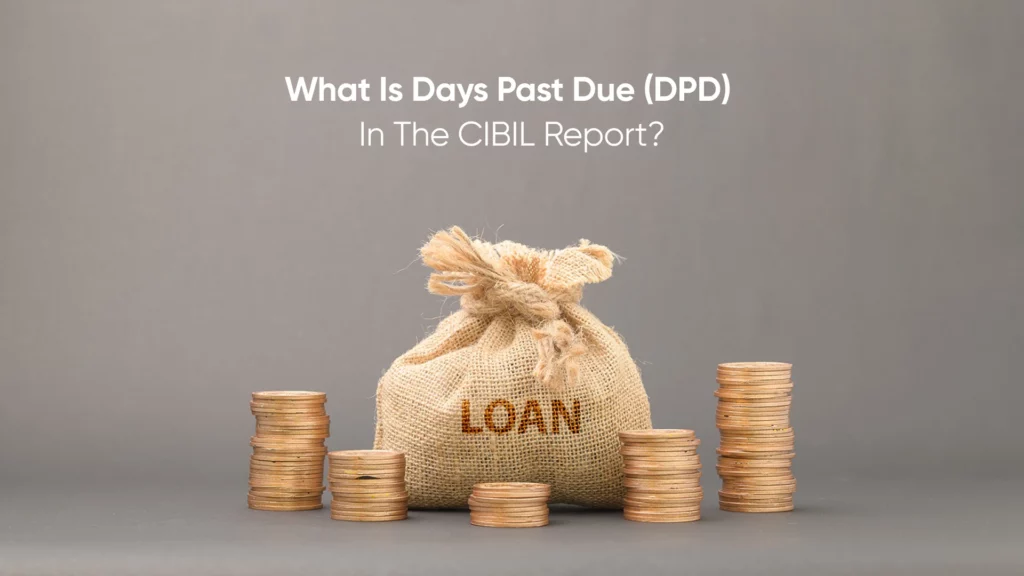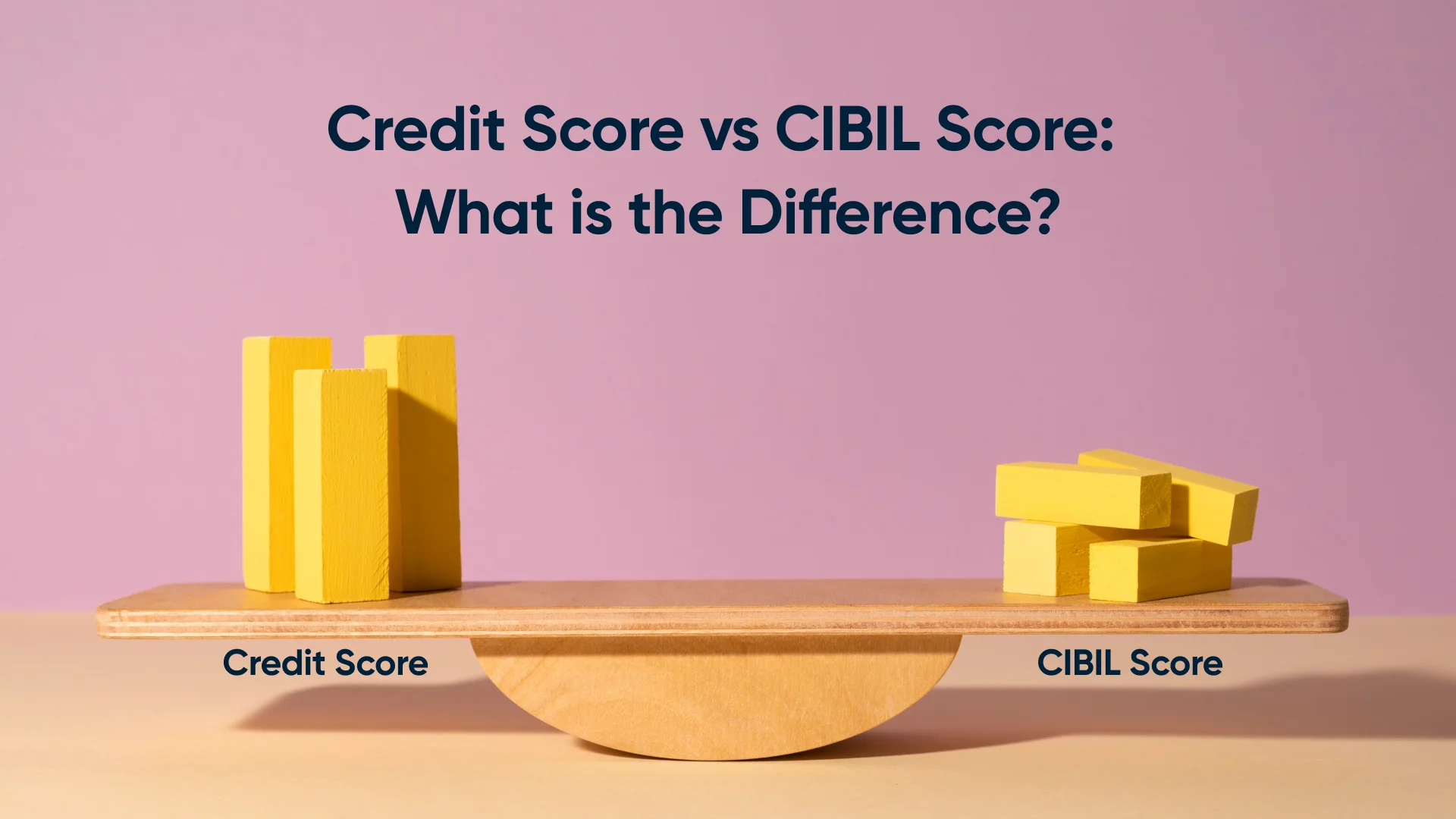What is Days Past Due (DPD) in the CIBIL Report?

Ever thought how your payment habits could be summed up in a few numbers? The number of days that you haven’t paid loan or credit card payments is tracked as Days Past Due (DPD) on your CIBIL report. It’s more than just a number; it represents your financial stability and affects how lenders see your creditworthiness. A thorough comprehension of DPD is necessary. Let’s discuss this topic in more detail in this article and understand what Days Past Due (DPD) means.
Table of Contents
ToggleWhat is Days Past Due (DPD)?
Credit bureaus such as CIBIL (Credit Information Bureau (India)) use a metric that shows how quickly a person or organization pays their debts. It reflects the number of days by which a payment is overdue beyond the due date agreed upon in the credit agreement. This metric is called as Days Past Due (DPD)
Understanding DPD Values
Your credit report’s DPD values give you a quick overview of your payment history and dependability. A DPD number of 000 shows that you’ve demonstrated responsible financial behavior by continuously making on-time payments with no past-due amounts. Lenders will see this positively and may still consider you for applying for a personal loan even if your credit score isn’t as high.
However, a XXX result indicates that the lender has not provided the credit bureau with information about your payment history, which does not affect your credit report.
The number of days your payments are past due is shown by values like 30, 60, or 90. Less than 90 days is a negative DPD, but it’s not as bad as larger DPD numbers, which indicate a greater risk to lenders. Keeping an eye on and controlling your DPD values will help you keep your credit profile in good shape as a good cibil score , become more creditworthy over time, and get better access to credit facilities when you need them.
How is DPD Calculated?
DPD tracks how many days you’ve missed making payments on your urgent personal loan EMIs or credit card bills. For instance, if your credit card bill was due on the 17th and you paid on the 20th, your DPD would be 3. The longer you delay payments, the higher your DPD number gets, unless you settle the overdue amount promptly.
Delays of 30 to 60 days or more become significant defaults, severely impacting your credit score. Such defaults can lead to a substantial drop of 50 to 300 points or potentially more, depending on the severity and duration of the delay.
Monitoring your DPD closely is crucial because it directly influences your creditworthiness. By promptly settling any overdue payments and maintaining a low DPD, you can protect your credit score, ensuring better access to credit options and favorable terms in the future.
Different DPD Statuses Explained
Lenders use DPD to gauge the creditworthiness and risk of lending to individuals. Here are key DPD values commonly found in CIBIL reports:
XXX: Indicates that the lender hasn’t updated the payment data, which doesn’t affect your credit profile.
000: Reflects no outstanding payments, demonstrating financial responsibility and reliability.
STD: Shows payments overdue by less than 90 days. While viewed negatively, it’s less severe than longer delays.
Delays beyond 90 days are more serious and can lead to the loan being classified as a non-performing asset (NPA) by banks. NPAs signify a significant default risk and can severely impact your credit score, affecting future borrowing opportunities and terms. Monitoring and managing your DPD values are crucial for maintaining a healthy credit profile and ensuring lenders perceive you as a responsible borrower.
Impact of DPD on Your Credit Score
Days Past Due (DPD), which shows your loan and credit card payment history directly, is a crucial factor in determining your credit score. Increased DPD numbers are indicative of payment delays, which can hurt your credit score. Lenders use DPD as a major criterion when determining your creditworthiness. A habit of financial irresponsibility is shown by consistently high DPD values, which raises the perceived risk of lending to you. Lenders may therefore decide to reduce their risk by rejecting your credit applications or by offering personal loans with higher interest rates. High DPD levels might have a detrimental effect on your credit score and limit your future access to credit facilities and favorable terms. It emphasizes how crucial it is to keep a low DPD and manage payments on time to retain a positive credit rating. Making on-time payments a priority and avoiding long delays will help you build credit over time and increase your chances of getting loans at favorable interest rates
How to Improve Your DPD Status?
These are concise pointers on how to improve your DPD status:
Timely Payments: Ensure all credit payments are made on or before the due date.
Set Reminders: Use alerts or automated reminders to stay informed about upcoming payment deadlines.
Clear Overdue Amounts: Promptly settle any overdue payments to prevent them from escalating.
Monitor Your Credit Report: Regularly check your credit report for accuracy and to track your payment history.
Communication with Lenders: If facing challenges, discuss potential payment solutions or alternatives with your lenders.
Responsible Financial Management: Maintain a budget and prioritize payments to avoid future delays.
Why Monitoring DPD is Important?
As it offers an instant evaluation of your payment habits and financial well-being, tracking your DPD is essential. You can quickly take corrective action when you find any irregularities or missed payments through routine checks. You may avoid problems getting worse and damaging your credit score and financial reputation by taking quick action to resolve them. Furthermore, monitoring assures that you stay conscious of your credit status and that you can make wise decisions that will safeguard and enhance your financial health over time.
Also Read: How to Improve/Increase Cibil(Credit) Score Immediately?
Conclusion
Days Past Due (DPD) indicates how well you can meet your credit commitments on time in credit reports. Building a strong credit history requires continuously making on-time payments to maintain a low DPD status. It shows lenders that you are a responsible borrower, which increases your eligibility for better personal loan terms and favorable interest rates. By keeping an eye on your DPD, you can remain proactive in maintaining your credit profile and catch any payment delays early on. By taking a proactive stance, you protect your credit score and general financial reputation, which keeps you in the running for competitive financing and future financial growth prospects.
Frequently Asked Questions
What Happens If DPD Is Late?
If your DPD is late, it indicates delays in payment on your credit obligations. This may result in higher interest rates on loans or credit cards and have a negative effect on your credit score. Prolonged or frequent delays could also be seen by lenders as an indication of financial danger.
What Is The Meaning Of Overdue DPD Detected?
When an overdue DPD is detected, it indicates that payments on your credit accounts have not been made by the due date. It indicates how many days you have missed payments, which might impact your credit record and creditworthiness.
How To Solve DPD in CIBIL?
The first step in addressing DPD in CIBIL is to quickly make all past-due payments. Regularly check your credit report for accuracy and file a dispute if there are any inconsistencies. Speak with lenders to go over possibilities for repayment or, if needed, to work out settlements.
How Many Attempts Does DPD Make?
DPD only shows how many days payments are past due; it doesn’t attempt to collect payments itself. Before informing credit bureaus of an account’s past-due status, lenders or creditors may make several attempts to collect payments.
How Do I Complain To DPD?
Get in touch with the credit bureau directly if you need to file a complaint regarding errors about DPD on your credit report. In addition, you can include documentation supporting your claim
How Do I Track My DPD Collection?
You can track your DPD collection by regularly checking your credit report from CIBIL or other credit bureaus. The report will detail your payment history, including any DPD statuses.
What Happens If You Don't Collect DPD?
DPD may result in additional financial repercussions, including fines, litigation, or debt collection efforts. It can also have a negative effect on your credit score and future creditworthiness.
Does Settling A Loan Affect My DPD?
Settling a loan can affect your DPD depending on how the settlement is reported. If the settlement clears all outstanding dues and is reported accurately, it can improve your DPD status. However, if there are discrepancies or incomplete settlements reported, it may still reflect negatively on your credit report.
YOU MAY ALSO LIKE





Search by posts
Recent post
Categories
- Blog (2)
- Credit History (25)
- Credit Line (7)
- Festive (3)
- Finance (15)
- Mutual Fund (9)
- Personal Loan (231)
- Tax (8)
- Zype (4)









